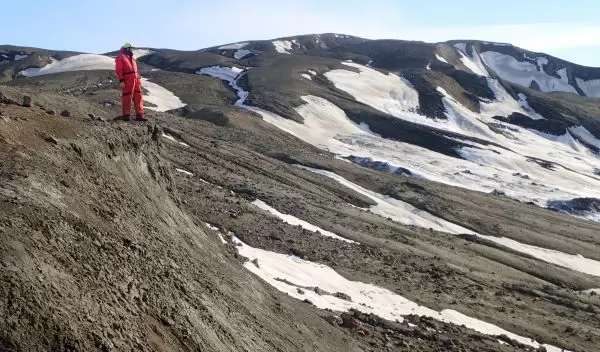
Earth was stressed before dinosaur extinction
New evidence gleaned from Antarctic seashells confirms that Earth was already unstable before the asteroid impact that wiped out the dinosaurs.
The study, led by NSF-funded researchers at Northwestern University, is the first to measure the calcium isotope composition of fossilized clam and snail shells, which date back to the Cretaceous-Paleogene mass extinction event 66 million years ago. The researchers found that -- in the run-up to the extinction event -- the chemistry of the shells shifted in response to a surge of carbon in the oceans.
This carbon influx was likely due to long-term eruptions from the Deccan Traps, a 200,000-square-mile volcanic province located in modern India. During the years leading up to the asteroid impact, the Deccan Traps spewed massive amounts of carbon dioxide into the atmosphere. The concentration of CO2 acidified the oceans, directly affecting the organisms living there.
"The Earth was clearly under stress before the major mass extinction event," said Andrew Jacobson, a senior author of the paper. "The asteroid impact coincides with pre-existing carbon cycle instability. But that doesn't mean we have answers to what actually caused the extinction."
The researchers examined shells collected from the Lopez de Bertodano Formation, a well-preserved, fossil-rich area on the west side of Seymour Island in Antarctica.
The researchers expected to see changes in the shells' composition, but were surprised by how quickly those changes happened. Understanding how the Earth responded to past extreme warming and CO2 input can help us prepare for how the planet will respond to current, human-caused climate change, the scientists said.
The study will be published in the January 2020 issue of the journal Geology.
